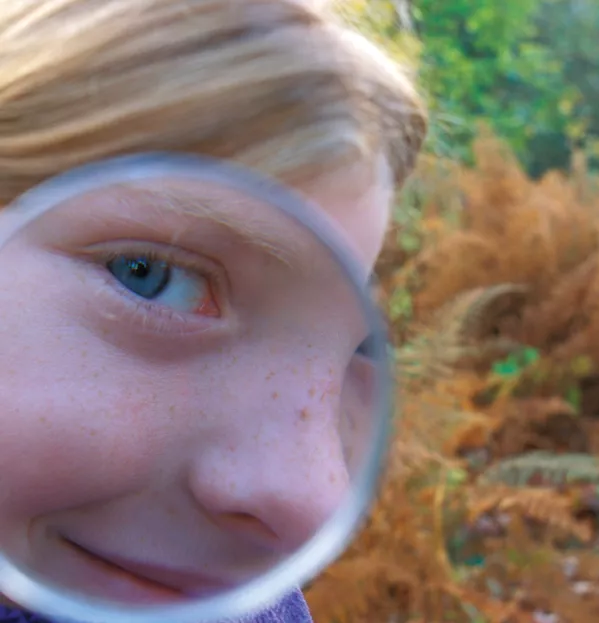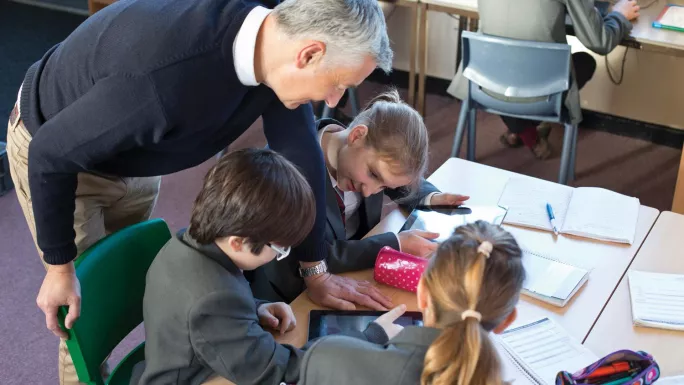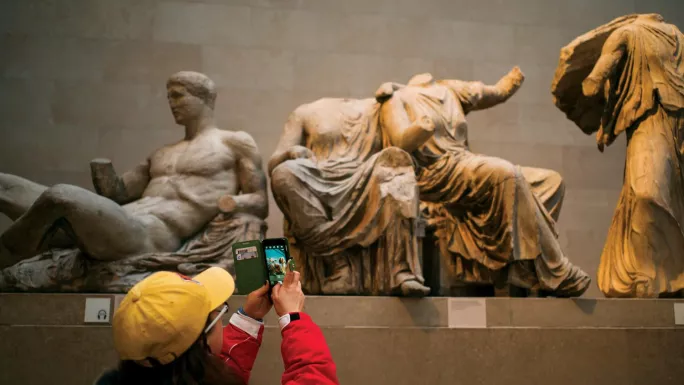
A school experimenting with research for all

Research, it would seem, is the buzzword of the moment in Scottish classrooms.
Graham Donaldson’s 2010 review of teacher education highlighted the need to develop educators’ expertise “in using research, enquiry and reflection as part of their daily skill set”.
Meanwhile, ministers are keen for teaching to become a master’s-level profession.
And ResearchEd, an organisation that is encouraging teachers to exchange ideas with academics and educationalists, held a conference in Scotland for the first time last year.
Now, Glasgow private school Hutchesons’ Grammar is blazing a trail by becoming the first school in Scotland to set up its own research centre for staff and pupils.
The initiative has led to one S6 student investigating whether children should be raised communally, rather than by their parents, and pupils as young as 15 writing for an academic journal (see box, “Museum project: ‘Engaging pupils in serious scholarship’”, below).
Now the school’s head of psychology, Jonathan Firth, is collaborating with a memory expert based at the University of Dundee to explore whether delaying homework by a few weeks can help pupils to remember lessons (see box, “Memory research”, below).
Teachers making their voices heard
This year, the school has taken on a research fellow, Anna Beck, who is spending one day a week supporting teachers and pupils to connect with research. Her first task will be to conduct a baseline survey of staff to uncover the various ways in which they are already doing so - including by engaging with TESS.
Ms Beck, who spends the rest of her week teaching and researching in the University of Strathclyde’s School of Education, would like to see more teachers participating in educational debate and making their voices heard. There are several ways to do this, she says, particularly through online networks such as Twitter and grass-roots organisations such as TeachMeet, which enables teachers to share good practice.
“Things are moving fast in education,” she says. “But it seems there is too much of a top-down approach and I’m interested in how teachers can be involved in shaping policy - how you empower teachers.”
However, not everyone is an advocate of the teacher-researcher. Visible Learning author Professor John Hattie told TES last year that teachers needed to concentrate on teaching, not research.
Teachers should be skilled at evaluating impact but could not be experts in everything and should leave the research to the academics, he argued.

There is widespread agreement, however, that teaching should at the very least be research-led. The standards for practising teachers set by the General Teaching Council for Scotland call for teachers to “engage with a range of educational literature” and to “systematically investigate, analyse and evaluate the impact of practice”.
Meanwhile, the government has said that it wants teaching to be a master’s-level profession - a level of study that has research as an integral part - and has invested £5 million in supporting teachers to engage in master’s-level programmes since 2012.
A government spokesman said: “We are committed to providing teachers with more opportunities to learn at master’s level as we know teacher quality is key to the success of schools and that there is a positive association between high-performing education systems and the level of teachers’ qualifications.”
‘Life-enhancing process’
At Hutchesons’ Grammar, the research centre does not have its own dedicated space. However, it has a modest budget and a director - Dr Philip Tonner, the school’s head of philosophy and religion.
The idea behind the project is to bring together people involved in research as well as being a point of contact for academics interested in engaging with the school, Tonner explains. “It is here to promote research as a good, life-enhancing, career-enhancing, and educationally enhancing process,” he adds.
Tonner, who was recently awarded his second doctorate, could hardly be a better advocate. Teachers engaging with research and conducting their own research encourages professional reflection and empowers them, he argues. “It’s about getting a different perspective on things and becoming confident to express your own views.”
‘Pupils are getting the skills to go off and look for their own answers - to feel skilled enough to hunt them down’
Tonner’s research is concerned with his own area of expertise, philosophy. Conducting subject-based research is as important for teachers as doing educational research, he believes, so that they are experts in their field.
“If you do research, you are part of the voices that are changing the subject,” he says. “I’ve always come at teaching from the academic perspective: that you teach what you research.”
In the past five years, Tonner has gained a second doctorate and published a book, as well as running a school department and setting up the research centre. “If you want to do it, you find the time,” he says. “Everyone is busy but they are busy doing the things they want to do.”
Psychology teacher Firth would not have considered doing a PhD a few years ago but, with his two children now aged 13 and 10, he took the plunge and signed up with the University of Strathclyde. Pursuing a PhD part-time will take him four to six years, he estimates.
Community spirit
The school’s research centre enables staff and pupils to be part of a research community as opposed to simply pursing individual projects, Firth says. And it has encouraged him to be more specific and focused in his efforts.
“If people are very committed, they would probably do the research anyway. But it’s better if there’s some institutional support behind it and that’s the reason for having the centre,” Firth explains. “It’s about having a system and the means to support people along the path.”
The school’s pupils are also supported to do research. There are plans afoot to introduce research skills classes and a junior independent research paper to S1-3 pupils. Already, pupils in S6 are offered the chance to undertake an independent research project, with teachers acting as supervisors.
This year, around 20 pupils in S6 out of a cohort of 110 have expressed an interest in completing a research project.
“They have to be very self-motivated because this is something they do entirely in their own time,” Firth says.
Those who stay the course, however, reap the benefits, according to Tonner: “They are getting the skills to go off and look for their own answers - to feel skilled enough to hunt them down and search them out. That’s really important, especially now when so much information is available second-hand but you don’t really know where it comes from.”

You need a Tes subscription to read this article
Subscribe now to read this article and get other subscriber-only content:
- Unlimited access to all Tes magazine content
- Exclusive subscriber-only stories
- Award-winning email newsletters
- Unlimited access to all Tes magazine content
- Exclusive subscriber-only stories
- Award-winning email newsletters
You need a subscription to read this article
Subscribe now to read this article and get other subscriber-only content, including:
- Unlimited access to all Tes magazine content
- Exclusive subscriber-only stories
- Award-winning email newsletters
- Unlimited access to all Tes magazine content
- Exclusive subscriber-only stories
- Award-winning email newsletters